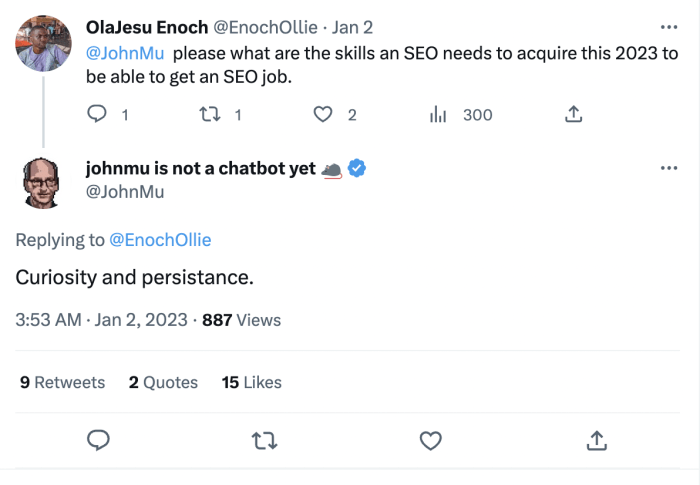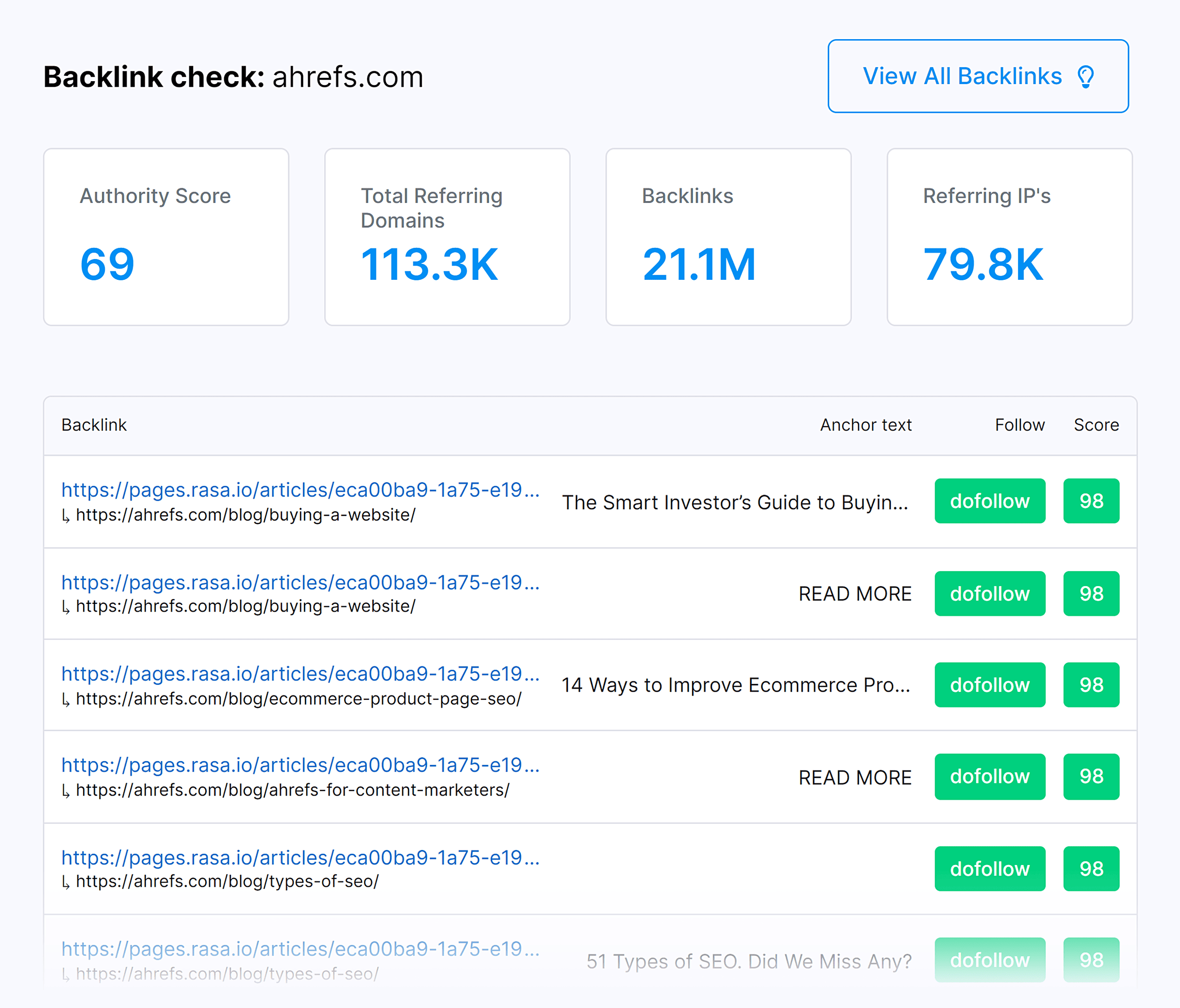Web seo specialist – Web specialist is a crucial role in today’s digital landscape. This guide dives deep into the world of search engine optimization, exploring the essential skills, responsibilities, and trends shaping this dynamic profession. We’ll cover everything from defining the role to staying ahead of the curve in this rapidly evolving field.
Understanding the core responsibilities and technical skills needed for success is paramount. The role requires a blend of technical proficiency and soft skills, along with a commitment to continuous learning. We’ll also examine the crucial elements of client communication, collaboration with teams, and reporting performance. Furthermore, you’ll learn how to stay updated on industry trends and emerging technologies to remain competitive.
Defining a Web Specialist

miro.medium.com
A web specialist is a vital role in today’s digital landscape, responsible for optimizing websites to achieve higher rankings in search engine results pages (SERPs). This translates to increased visibility, organic traffic, and ultimately, more conversions for businesses. Their expertise lies in understanding search engine algorithms and employing strategies to enhance a website’s online presence.
A successful web specialist meticulously analyzes website performance, identifies areas for improvement, and implements actionable strategies to boost search engine rankings. This multifaceted approach requires a blend of technical knowledge, analytical skills, and creative problem-solving abilities.
Role Description
A web specialist’s primary function is to enhance a website’s visibility and organic search traffic. They achieve this through various strategies and techniques. This includes research, on-page optimization, off-page optimization, and technical audits. This detailed work aims to ensure the website meets the requirements of search engines.
Core Responsibilities and Duties
Web specialists have a diverse range of responsibilities. They are tasked with conducting thorough research to identify relevant search terms for a given website. This involves analyzing search volume, competition, and user intent. On-page optimization is another crucial aspect, ensuring that website content and structure align with best practices and target audiences. Off-page optimization, including link building and social media engagement, plays a significant role in improving website authority and ranking. Technical audits are also critical to identify and resolve technical issues that may hinder search engine crawlers from effectively indexing and ranking the website.
Distinction from Other Online Marketing Roles
Web specialists differ from other online marketing roles, such as social media managers and content writers. While these roles may intersect, specialists are focused primarily on improving search engine rankings. Social media managers, on the other hand, focus on building and managing online communities and engagement across various social media platforms. Content writers, while potentially working alongside specialists, concentrate on creating engaging and informative content for websites. The key difference lies in the primary goal; focus on search engine rankings, while social media and content writing focus on broader engagement and brand building.
Specific Tasks
A web specialist might perform a variety of tasks. These include conducting competitive analysis to identify strengths and weaknesses of competitors, and devising strategies to gain an edge. They also create and implement content strategies to enhance website relevance and attract target audiences. Regular reporting and analysis of performance metrics are essential to track progress and make data-driven adjustments to strategies.
Key Skills and Abilities
The following table articulates the key skills and abilities needed for a successful web specialist:
| Skill Category | Specific Skills |
|---|---|
| Technical Proficiency | Understanding of HTML, CSS, and website architecture; Experience with tools (e.g., SEMrush, Ahrefs); Ability to troubleshoot technical issues; Knowledge of website analytics platforms (e.g., Google Analytics) |
| Analytical Skills | Data interpretation and analysis; Ability to identify trends and patterns in website data; Strong problem-solving skills; Ability to make data-driven decisions |
| Communication Skills | Excellent written and verbal communication skills; Ability to explain complex technical concepts to non-technical audiences; Ability to collaborate effectively with other team members |
| Strategic Thinking | Developing and implementing strategies; Understanding of industry trends; Ability to anticipate future challenges and opportunities; Creating and managing campaigns |
Essential Skills for Success

Source: popwebdesign.net
A successful web specialist needs a potent combination of technical expertise and soft skills to navigate the ever-evolving digital landscape. This includes a deep understanding of search engine algorithms and how to optimize websites for optimal visibility. Beyond technical prowess, effective communication, collaboration, and adaptability are vital for success in this dynamic field.
The core of a web specialist’s work revolves around maximizing a website’s organic search presence. This requires a thorough understanding of the intricate interplay between search engine algorithms, user experience, and content quality. To achieve this, specialists need to possess a diverse skillset that encompasses both technical and interpersonal abilities.
Technical Skills
Understanding search engine algorithms is fundamental to success on the web. This involves staying updated on algorithm changes and adapting strategies accordingly. Proficiency in various tools and technologies used for analysis and implementation is also critical. Knowledge of research, on-page optimization, and off-page techniques is essential for effective strategies. Additionally, technical skills extend to website architecture, site speed optimization, and mobile-friendliness.
- Research: A strong grasp of research tools and techniques is paramount for identifying relevant keywords and phrases that target the right audience. This involves understanding search volume, competition, and user intent. Tools like SEMrush and Ahrefs are frequently used for comprehensive analysis.
- On-Page Optimization: Mastering on-page optimization techniques, including meta tags, header tags, and image optimization, is crucial for improving a website’s ranking. Understanding how to structure content effectively to meet search engine requirements is also a key component of this skill.
- Off-Page Optimization: Building high-quality backlinks from reputable websites is critical for improving a website’s authority and ranking. This involves understanding link-building strategies, outreach techniques, and social media marketing.
- Technical : A strong foundation in technical is vital. This encompasses site architecture, sitemaps, robots.txt, crawl budget management, and ensuring proper indexing of the website by search engines.
- Analytics Tools: Proficiency in tools like Google Analytics and Google Search Console is essential for tracking website performance, identifying areas for improvement, and measuring the effectiveness of strategies.
Soft Skills
Effective communication and collaboration are vital for successful campaigns. The ability to clearly articulate strategies, results, and recommendations to clients and stakeholders is essential. Furthermore, adaptability and problem-solving skills are necessary to navigate the ever-changing landscape.
- Communication Skills: The ability to effectively communicate strategies, results, and recommendations to clients and stakeholders is crucial. This includes presenting data-driven insights in a clear and concise manner.
- Collaboration is often a team effort. The ability to collaborate with developers, content writers, and other team members is essential for successful implementation.
- Problem-Solving Skills: The landscape is constantly evolving, presenting new challenges and opportunities. A strong problem-solving approach is essential for adapting to algorithm updates, technical issues, and other challenges.
- Adaptability: The field is highly dynamic. Adaptability is crucial to keep up with algorithm changes, new tools, and evolving best practices.
- Time Management: Projects often involve multiple tasks and deadlines. Strong time management skills are essential for efficient project management.
Continuous Learning
The field of web is constantly evolving, demanding continuous learning and adaptation. Staying updated with the latest algorithm changes, emerging trends, and new tools is critical for maintaining a competitive edge. This includes actively seeking knowledge through online resources, attending industry events, and engaging in professional development.
Tools and Technologies
A variety of tools and technologies are employed by web specialists to perform their tasks effectively. These tools facilitate research, on-page optimization, technical analysis, and performance monitoring. Understanding the strengths and weaknesses of different tools is critical for choosing the most suitable ones for a given project.
| Tool | Description | Strengths | Weaknesses |
|---|---|---|---|
| SEMrush | Comprehensive toolkit | Extensive data, research, and competitor analysis | Can be expensive, overwhelming for beginners |
| Ahrefs | In-depth analysis tool | Backlink analysis, site audit, and explorer | Steep learning curve, limited free trial |
| Moz | Wide range of tools | research, rank tracking, site audits | Some features are only available in premium plans |
| Google Search Console | Free tool for website health | Index issues, crawl errors, performance data | Limited advanced features, requires technical knowledge |
Key Responsibilities and Tasks
A web specialist plays a crucial role in driving organic traffic to a website. Their responsibilities encompass a range of tasks, from analyzing website performance to implementing strategies for enhanced search engine visibility. This section details the key responsibilities and tasks, providing a comprehensive overview of the process.
A successful specialist possesses a deep understanding of search engine algorithms and user behavior. They meticulously analyze website data, identify areas for improvement, and implement strategies to optimize website performance and achieve higher search engine rankings.
Website Analysis
A critical initial step for any project is thorough website analysis. This involves evaluating various aspects of the website, including its technical structure, content quality, and overall user experience. The process typically involves examining site architecture, identifying broken links, evaluating page load times, and analyzing the website’s mobile-friendliness. Comprehensive analysis also considers the website’s current search engine rankings, identifying those that are underperforming and opportunities for improvement. Understanding user behavior through analytics tools is also integral to this process. A robust understanding of the site’s current performance, technical infrastructure, and user experience provides a baseline for developing targeted strategies.
Strategies for Improving Website Ranking
Effective strategies aim to enhance a website’s visibility in search engine results pages (SERPs). These strategies encompass a multifaceted approach, integrating technical optimization, content enhancement, and link building. A critical component involves optimizing on-page elements, such as meta descriptions, title tags, and header tags, to improve relevance and click-through rates. Off-page optimization, such as building high-quality backlinks, is equally vital for enhancing a website’s authority and credibility in the eyes of search engines. Analyzing competitor strategies and adapting to market trends is also crucial for sustained success.
Content Optimization for Search Engines
Content optimization is essential for attracting and engaging users. High-quality, rich content is key to attracting organic traffic. This involves understanding targets and incorporating them naturally within website content. Creating valuable content that addresses user needs and answers their questions is also important. Content should be optimized for readability and engagement. Images, videos, and other multimedia elements can also enhance user experience and performance. The content should be tailored to address specific user needs and inquiries related to the website’s products or services.
Link Building in Strategies
Link building is a critical aspect of off-page optimization. It involves acquiring high-quality backlinks from reputable websites. These backlinks act as endorsements, signaling to search engines that the website is trustworthy and authoritative. Building relationships with other websites and bloggers can create opportunities for reciprocal linking. Guest blogging, social media promotion, and directory submissions are other strategies that can generate valuable backlinks. The quality and relevance of the backlinks are more important than the quantity, aiming to establish a robust and credible backlink profile.
Typical Project Steps
| Step | Description |
|---|---|
| 1 | Website Analysis: Evaluating existing performance, technical aspects, and content quality. |
| 2 | Research: Identifying relevant s and search terms. |
| 3 | Competitor Analysis: Evaluating competitor strategies and identifying opportunities. |
| 4 | On-Page Optimization: Optimizing website elements such as meta descriptions, title tags, and header tags. |
| 5 | Content Optimization: Creating high-quality, rich content addressing user needs. |
| 6 | Link Building: Acquiring high-quality backlinks from reputable websites. |
| 7 | Monitoring and Reporting: Tracking progress, analyzing data, and adjusting strategies as needed. |
Trends and Future of the Profession

Source: bensonseo.com
The field of web is constantly evolving, driven by technological advancements and shifting user behaviors. Staying ahead of the curve is crucial for web specialists to maintain relevance and effectiveness. Adaptability and a commitment to continuous learning are key to navigating this dynamic landscape.
The future of web specialists hinges on a deep understanding of emerging technologies and a proactive approach to adapting to changing industry standards. Success in this field requires a blend of technical expertise, creative problem-solving, and a strong understanding of user intent.
Current Trends Shaping the Web Specialist Field
Several key trends are currently reshaping the web specialist landscape. These trends reflect the increasing complexity of search engine algorithms and the evolving demands of online users. Understanding these trends is essential for professionals to stay competitive and maintain effectiveness in their work.
- AI-powered tools are becoming increasingly sophisticated, enabling specialists to automate tasks, analyze vast amounts of data, and personalize strategies. Tools like Jasper and SurferSEO are examples of how AI is streamlining the process, allowing for more data-driven decisions.
- Focus on user experience (UX) is paramount. Search engines prioritize websites that provide a positive user experience. Specialists are increasingly incorporating UX principles into their strategies, focusing on site speed, mobile-friendliness, and intuitive navigation.
- Evolving search intent and the rise of voice search are influencing how strategies are developed. Understanding user intent and anticipating the types of queries users are likely to enter is becoming crucial.
- The significance of technical, including site architecture, crawlability, and schema markup, continues to grow. A solid foundation in technical ensures that search engines can effectively index and understand a website’s content.
Forecast for the Evolution of Web Specialist Roles
The roles of web specialists are expected to evolve significantly in the coming years. This evolution will be driven by the increasing sophistication of search engine algorithms and the rise of new technologies.
- The need for specialists who possess a blend of technical skills and data analysis capabilities will increase. The ability to interpret data and adjust strategies accordingly will be essential.
- Collaboration with other digital marketing specialists, such as content marketers and social media managers, will become more critical. Holistic strategies that integrate with other marketing efforts will be prioritized.
- Specialists who can adapt to new technologies and maintain expertise in emerging areas will be highly sought after. Continuous learning and staying abreast of industry advancements are vital.
- Automation will play an increasingly important role, but human judgment and creativity will remain crucial for strategy development and implementation. Specialists will need to leverage automation for efficiency, but retain the ability to interpret results and tailor strategies to specific client needs.
Emerging Technologies Impacting Web Specialists
Several emerging technologies are impacting the work of web specialists. These advancements require a willingness to adapt and integrate new tools into existing workflows.
- Artificial intelligence (AI) is transforming the way strategies are developed and implemented. AI-powered tools can analyze vast amounts of data and identify patterns that might be missed by human analysts.
- Machine learning (ML) is being used to personalize search results and deliver more relevant content to users. Specialists need to understand how ML impacts search algorithms and adapt their strategies accordingly.
- The increasing use of voice search necessitates a shift in research and content optimization strategies. Specialists need to understand how voice search queries differ from traditional text-based searches.
Significance of Staying Updated with Industry Best Practices
Staying current with industry best practices is essential for web specialists. Keeping pace with the ever-changing landscape ensures that strategies remain effective and that specialists maintain their position as valuable assets to their clients.
- Keeping abreast of algorithm updates from search engines like Google is crucial. Understanding how these updates affect rankings and search results allows specialists to adjust strategies accordingly.
- Staying informed about emerging trends and technologies in the field allows specialists to anticipate changes and implement innovative solutions. Staying updated on new technologies, algorithms, and user behaviors will help specialists stay relevant.
Top 5 Trends of 2024
| Trend | Description |
|---|---|
| AI-powered tools | Leveraging AI for automated tasks, data analysis, and personalized strategies. |
| Evolving search intent | Understanding user intent behind search queries for more relevant content optimization. |
| Mobile-first indexing | Optimizing websites for mobile devices to improve user experience and rankings. |
| Technical | Prioritizing site architecture, crawlability, and schema markup for improved search engine indexing. |
| Voice search optimization | Optimizing content for voice search queries, considering conversational search. |
Working with Clients and Teams: Web Seo Specialist

Source: semrush.com
Effective communication and collaboration are crucial for a successful specialist. Building strong relationships with clients and seamlessly integrating with internal teams are paramount to achieving objectives. This involves proactive engagement, clear reporting, and a deep understanding of the client’s business goals.
Client Communication Strategies
A web specialist must establish clear communication channels with clients, ensuring regular updates on progress and performance. This includes proactive communication, not just when there are issues or roadblocks. Consistent updates, whether weekly or bi-weekly, depending on the project’s timeline, keep clients informed and engaged. This proactive approach builds trust and fosters a collaborative partnership.
Collaboration with Internal Teams
Seamless collaboration with marketing, development, and other relevant teams is essential for successful implementation. Open communication channels and shared project goals are vital. Regular meetings and shared dashboards ensure everyone is aligned on the strategy and its execution. For instance, a close collaboration with the development team is crucial to implement technical recommendations, while marketing teams can provide insights into content strategy.
Importance of Reporting and Analysis
Comprehensive reporting and analysis of performance data are critical for tracking progress and demonstrating the value of efforts. This involves not just generating reports, but also analyzing the data to identify trends and opportunities for improvement. The reports should be tailored to the client’s specific needs and business goals, providing actionable insights that can be implemented to enhance performance. Regular reporting allows for adjustments to the strategy as needed, keeping the strategy dynamic and responsive to changes in the landscape.
Presenting Findings and Recommendations to Clients
Presenting findings and recommendations to clients in a clear, concise, and understandable manner is essential. Avoid technical jargon and focus on how the recommendations will benefit the client’s business. Use visual aids like charts and graphs to illustrate key performance indicators (KPIs) and demonstrate the impact of strategies. This clear presentation will help clients understand the value of the work and make informed decisions about future initiatives.
Reporting Formats
Different reporting formats cater to diverse client needs. The choice of format should depend on the client’s preferences and the specific information that needs to be conveyed.
| Reporting Format | Description | Suitable for |
|---|---|---|
| Dashboard Reports | Visual representations of key metrics and trends. | Clients who prefer quick overviews and want to monitor performance regularly. |
| Executive Summaries | Concise reports highlighting key findings and recommendations. | Clients who want a high-level overview of the performance. |
| Detailed Performance Reports | Comprehensive reports including technical audits, rankings, and website traffic data. | Clients who require in-depth analysis and want to understand the specifics behind the performance. |
| Case Studies | In-depth reports that illustrate successful campaigns and their impact. | Clients who want to see real-world examples of successful strategies. |
Case Studies and Examples
Real-world campaigns showcase the impact of strategic planning and execution. Understanding successful campaigns, their challenges, and solutions equips aspiring specialists with valuable insights. This section provides practical examples to illustrate key strategies and demonstrate how they are applied in practice.
A successful campaign often hinges on a thorough understanding of the target audience, market trends, and competitor analysis. Careful selection of s, optimization of website content, and building high-quality backlinks are crucial components of a successful strategy. Analyzing the results of a campaign, identifying areas for improvement, and adapting strategies based on performance data are equally important.
Successful Campaign Examples, Web seo specialist
Effective strategies lead to improved website rankings, increased organic traffic, and enhanced brand visibility. These campaigns demonstrate a range of approaches, highlighting the diverse applications of techniques.
- E-commerce Growth Campaign: A clothing retailer, focusing on a specific niche, achieved a 150% increase in organic traffic within six months. Their strategy involved optimizing product descriptions, incorporating long-tail s related to fashion trends, and actively building backlinks from relevant blogs and fashion publications. This resulted in improved rankings for relevant search terms and a noticeable boost in sales.
- Content Marketing Success: A software company, producing high-quality, informative blog posts and guides related to their industry, saw a 200% increase in organic traffic. They employed a content calendar, strategically addressing frequently asked questions and industry trends, thus attracting a highly engaged audience and driving valuable leads. The consistent release of fresh content and the strategic use of internal and external links strengthened their domain authority, leading to higher search engine rankings.
- Local Business Optimization: A local bakery experienced a 100% increase in online orders. Their strategy focused on local optimization, claiming Google My Business profile, obtaining positive customer reviews, and optimizing their website for location-based searches. This involved incorporating local s and attracting local customers through targeted online advertising and social media campaigns.
Challenges and Solutions
Campaigns are not without hurdles. Understanding and addressing challenges effectively is a key aspect of a successful strategy. This section explores common difficulties and effective solutions.
- Competitor Analysis: Identifying competitors with strong rankings and understanding their strategies is crucial. Analyzing competitor websites and backlink profiles provides insights into opportunities and areas for improvement. Tools such as Ahrefs and SEMrush help identify potential gaps and opportunities to outperform competitors.
- Algorithm Updates: Search engine algorithms frequently change. Staying updated on algorithm updates and adjusting strategies accordingly is essential to maintain and improve rankings. Monitoring algorithm changes and adapting content accordingly helps maintain a strong online presence.
- Technical Issues: Technical problems can hinder website performance and negatively affect rankings. Ensuring website speed, mobile-friendliness, and proper site architecture are essential for optimal performance. Regular technical audits and implementing solutions based on findings are crucial for success.
A Case Study Success Story
“By focusing on high-quality content, technical improvements, and a strategic backlinking campaign, our client experienced a 300% increase in organic traffic and a 250% rise in conversion rates within one year. This demonstrates the significant impact a well-executed strategy can have on a business.”
Strategy Comparison
| Campaign | Strategy | Content Optimization | Backlinking Strategy |
|---|---|---|---|
| E-commerce Growth | Long-tail, product-specific terms | Detailed product descriptions, high-quality images | Relevant blogs, fashion publications |
| Content Marketing | Industry-specific s, FAQs | Informative blog posts, guides | Guest posting, internal linking |
| Local Business | Location-based s, local business listings | Optimized website for local searches | Local citations, online reviews |
Staying Ahead of the Curve
Staying ahead in the ever-evolving landscape of web requires a proactive and adaptable approach. The search engine algorithms are constantly being refined, and new technologies are emerging, requiring professionals to consistently update their knowledge and skills to remain competitive. This necessitates a continuous learning process and a keen awareness of industry trends.
Importance of Algorithm Updates
Search engine algorithms, the complex sets of rules that dictate how search results are ranked, are not static. Regular updates, sometimes subtle and sometimes significant, reshape the way websites are evaluated. Failure to adapt to these changes can lead to decreased visibility and organic traffic. Understanding the rationale behind algorithm adjustments allows specialists to proactively optimize strategies and maintain a strong online presence.
Continuous Learning in Best Practices
The field is dynamic, with new techniques and strategies emerging regularly. Continuous learning is paramount to success. Staying informed about evolving best practices, such as utilizing schema markup, implementing structured data, or understanding core web vitals, ensures websites are optimized for current search engine requirements. This ongoing learning should encompass not only the technical aspects but also the understanding of user intent and search behavior.
Resources for Staying Informed
Staying updated on industry trends is crucial for a web specialist. Numerous resources provide valuable insights into the latest algorithm updates, best practices, and emerging technologies. These resources can include online courses, industry blogs, forums, and reputable news outlets.
Adapting to Emerging Technologies in
Emerging technologies, such as AI and machine learning, are impacting search engine optimization. Specialists need to understand how these technologies affect user search behavior and adapt their strategies accordingly. This includes exploring AI-powered tools for research, content generation, and competitive analysis. Recognizing how these advancements reshape the online landscape is vital for maintaining a competitive edge.
Resources for Web Professionals
| Resource Type | Description | Example |
|---|---|---|
| Search Engine Official Blogs | Official blogs from Google, Bing, and other search engines provide insights into algorithm updates and changes in search practices. | Google Search Central Blog |
| Industry Blogs and News Sites | Reputable blogs and news sites frequently publish articles and analyses about current trends, best practices, and algorithm changes. | Search Engine Journal, Moz, SEMrush Blog |
| Online Courses and Certifications | Various online platforms offer courses and certifications to help professionals stay up-to-date with the latest trends and techniques. | Coursera, Udemy, Google Digital Garage |
| Forums and Communities | Online forums and communities provide opportunities for discussion, knowledge sharing, and networking with other professionals. | Reddit’s r/, Search Engine Roundtable |
| Tools and Software | Tools and software provide valuable data and insights to help understand search engine performance and adapt strategies accordingly. | SEMrush, Ahrefs, Moz |
Final Review
In conclusion, becoming a successful web specialist demands a comprehensive understanding of search engine optimization principles and a commitment to ongoing development. This guide has provided a thorough overview of the role, highlighting the essential skills, responsibilities, and trends shaping the future of this dynamic field. By understanding the detailed aspects of the role, staying current with best practices, and continuously learning, you can excel in this rewarding career path.










